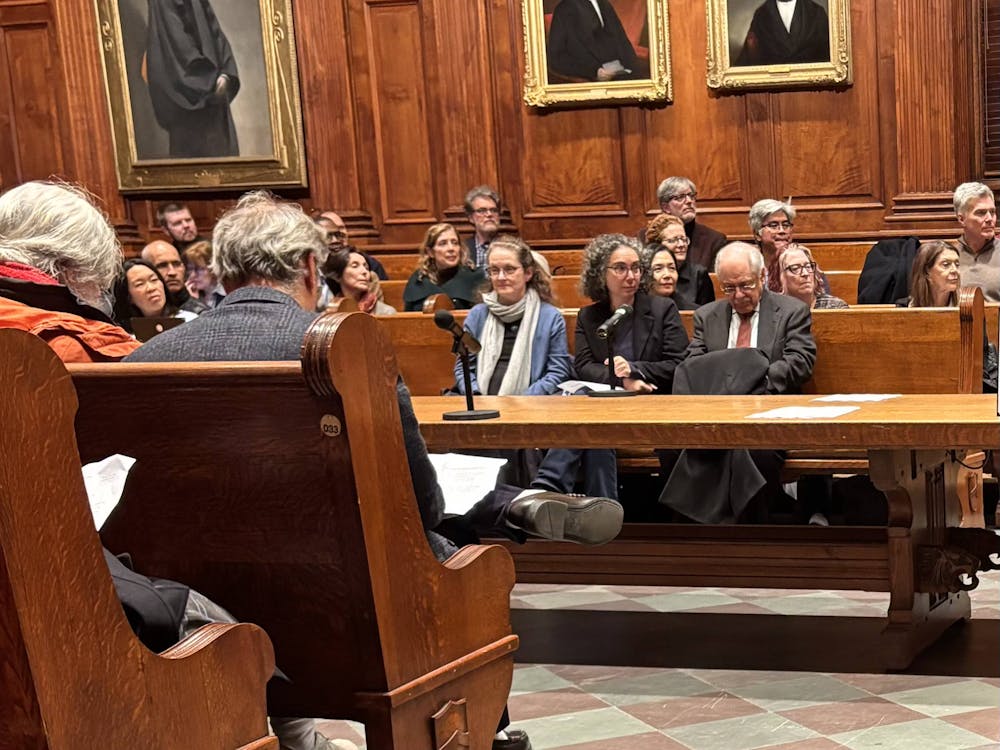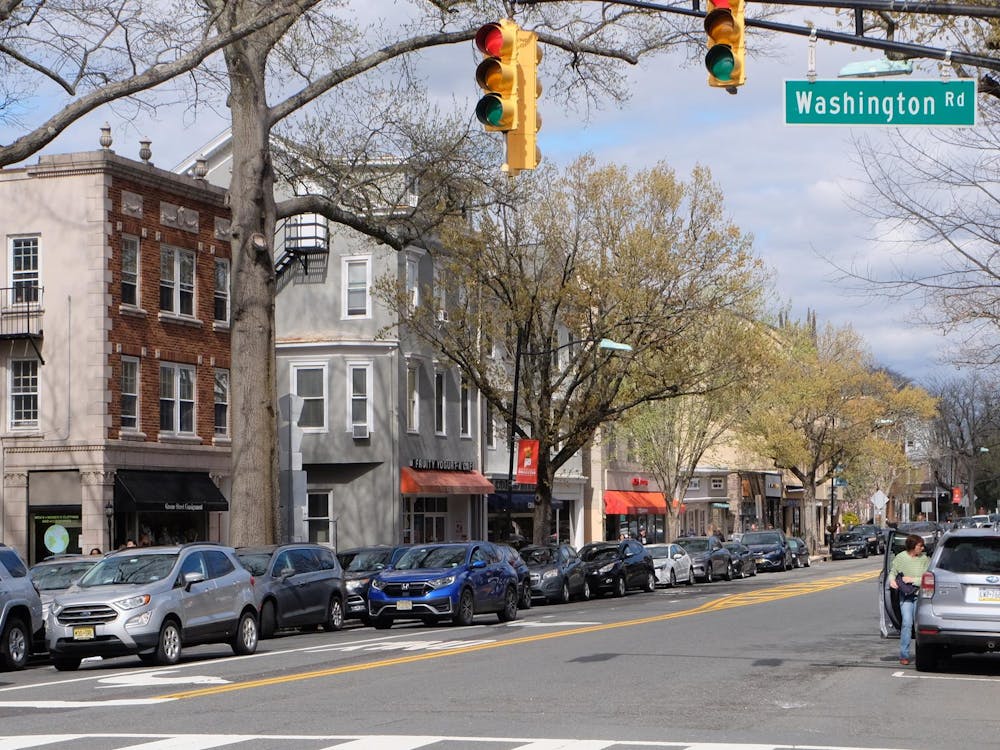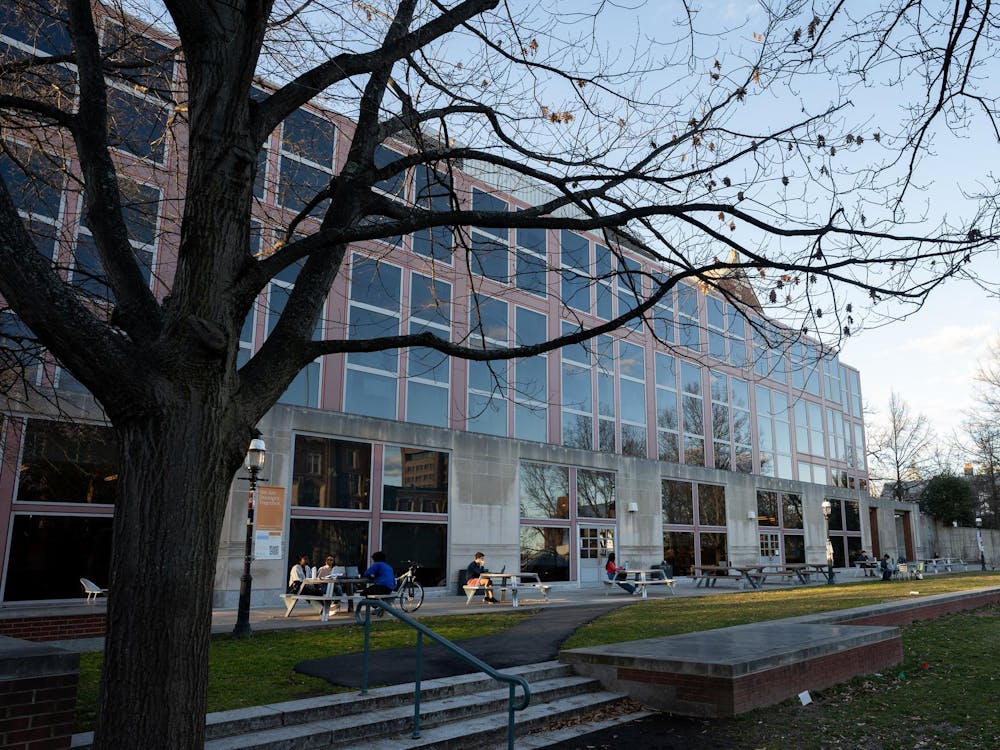President Tilghman addressed last night's USG Senate meeting — the first of the academic year — expressing her views on issues including the upcoming 500-student increase, faculty tenure, the role of athletics in University life, the possible alcohol ordinance and the University's response to the recent attacks on New York and Washington.
Tilghman, after introducing herself, described her wishes to get to know and listen to student concerns in her first year.
"I have restricted all travel. I will be going out . . . and meeting alums, but mostly, I will be staying home and meeting with groups like this," she said.
"I hope to have lunch at all the residential colleges, at the eating clubs, with groups of independents . . . and to find ways of going out and meeting with students as much as possible," she added.
Tilghman answered a question about the role of University athletics by first pointing out that she had been a three-sport athlete in college, adding that "athletics in its proper place can be an extraordinarily important part of life at an institution like Princeton."
However, she said that athletics should not undermine academics and that she is concerned about assertions in "The Game of Life" — a book on collegiate athletics co-authored by President Emeritus William Bowen GS '58 — that college athletes sometimes do not perform in line with their expected academic achievement.
Tilghman also addressed the possible alcohol ordinance discussed by the Borough.
"I am not in favor of the Borough's proposal, to go into private residences, essentially," she said.
"It is important for us not to say that we don't believe there is an alcohol problem," Tilghman added. "There is an alcohol problem. Even if we have one student who is drinking himself into a stupor, we have a problem in my opinion."
Though she has perhaps become less extreme in her opinion of tenure since her New York Times column of Jan 26, 1993, when she suggested abolishing tenure entirely, Tilghman said she still has concerns about the system.
Last night, she said that tenure puts scholars whose work is long term or in a field with slow publication at a disadvantage in Princeton's short, five-year tenure system. She added that women, who might take maternity leave, are also negatively affected.
Tilghman said that one of the University's most important projects is the student body increase of about 10 percent, beginning in 2005. She outlined the four areas of focus — facilities, academics, campus life and budget — and added that "nothing will be done without the input of the student body."

Regarding the recent terrorist attacks in New York and Washington, she said that "we benefit from the enormous confidence that people have in institutions of higher education, and it is important that we meet [those expectations]."
She added that she has rewritten her installation speech, to be given Friday, to include the recent attacks and address Princeton's responsibility regarding them.
"I think it was really insightful to see what her priorities are," USG president Joe Kochan '02 said. He added that Tilghman's visit is a demonstration of the University's dedication to students. "It's indicative of what is important here — the undergraduate education."
After Tilghman's question-and-answer period finished, the Senate approved recognition of two new student groups, the Princeton Committee Against Terrorism and the Princeton Philosophical Society, dedicated to encouraging discussions and beginning a lecture series on contemporary philosophy.
Treasurer Michael Kimberly '03 said last night that, because the USG's budget surplus was spent last year on social events and the new USG office, the financial goal this year is to "save money."
Kochan said his personal goals for the USG this year are to increase voter registration, to encourage students to take an active role in Borough politics and to release the reports the USG began last year on women and minority issues and act on them.







